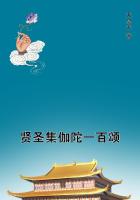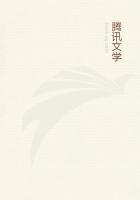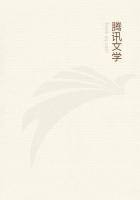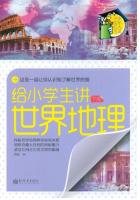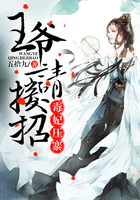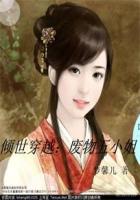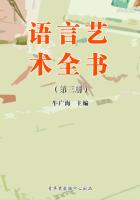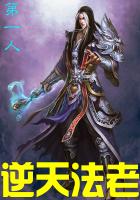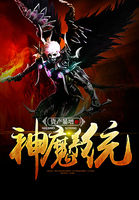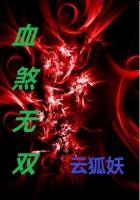v. 53. Cahors.] A city in Guienne, much frequented by usurersv. 83. Thy ethic page.] He refers to Aristotle's Ethics. [GREEK HERE]
"In the next place, entering, on another division of the subject, let it be defined. that respecting morals there are three sorts of things to be avoided, malice, incontinence, and brutishness."v. 104. Her laws.] Aristotle's Physics. [GREEK HERE] "Art imitates nature." --See the Coltivazione of Alamanni, l. i.
-I'arte umana, &c.
v. 111. Creation's holy book.] Genesis, c. iii. v. 19. "In the sweat of thy face shalt thou eat bread."v. 119. The wain.] The constellation Bootes, or Charles's wain.
v. 17. The king of Athens.] Theseus, who was enabled, by the instructions of Ariadne, the sister of the Minotaur, to destroy that monster.
v. 21. Like to a bull.] [GREEK HERE] Homer Il. xvii 522 As when some vig'rous youth with sharpen'd axe A pastur'd bullock smites behind the horns And hews the muscle through; he, at the stroke Springs forth and falls. Cowper's Translation.
v. 36. He arriv'd.] Our Saviour, who, according to Dante, when he ascended from hell, carried with him the souls of the patriarchs, and other just men, out of the first circle. See Canto IV.
v. 96. Nessus.] Our poet was probably induced, by the following line in Ovid, to assign to Nessus the task of conducting them over the ford: Nessus edit membrisque valens scitusque vadorum. Metam, l. ix. And Ovid's authority was Sophocles, who says of this Centaur-- [GREEK HERE] Trach.570 He in his arms, Evenus' stream Deep flowing, bore the passenger for hire Without or sail or billow cleaving oar.
v. 110. Ezzolino.] Ezzolino, or Azzolino di Romano, a most cruel tyrant in the Marca Trivigiana, Lord of Padua, Vicenza, Verona, and Brescia, who died in 1260. His atrocities form the subject of a Latin tragedy, called Eccerinis, by Albertino Mussato, of Padua, the contemporary of Dante, and the most elegant writer of Latin verse of that age. See also the Paradise, Canto IX. Berni Orl. Inn. l ii c. xxv. st. 50. Ariosto. Orl. Fur. c. iii. st. 33. and Tassoni Secchia Rapita, c. viii. st 11.
v. 111. Obizzo' of Este.] Marquis of Ferrara and of the Marca d'Ancona, was murdered by his own son (whom, for the most unnatural act Dante calls his step-son), for the sake of the treasures which his rapacity had amassed. See Ariosto. Orl. Fur. c. iii. st 32. He died in 1293 according to Gibbon. Ant. of the House of Brunswick. Posth. Works, v. ii. 4to.
v. 119. He.] "Henrie, the brother of this Edmund, and son to the foresaid king of Almaine (Richard, brother of Henry III. of England) as he returned from Affrike, where he had been with Prince Edward, was slain at Viterbo in Italy (whither he was come about business which he had to do with the Pope) by the hand of Guy de Montfort, the son of Simon deMontfort, Earl of Leicester, in revenge of the same Simon's death. The murther was committed afore the high altar, as the same Henrie kneeled there to hear divine service." A.D. 1272, Holinshed's chronicles p 275. See also Giov. Villani Hist. I. vii. c. 40.
v. 135. On Sextus and on Pyrrhus.] Sextus either the son of Tarquin the Proud, or of Pompey the Great: or as Vellutelli conjectures, Sextus Claudius Nero, and Pyrrhus king of Epirus.
v. 137. The Rinieri, of Corneto this, Pazzo the other named.] Two noted marauders, by whose depredations the public ways in Italy were infested. The latter was of the noble family of Pazzi in Florence.
v. 10. Betwixt Corneto and Cecina's stream.] A wild and woody tract of country, abounding in deer, goats, and wild boars. Cecina is a river not far to the south of Leghorn, Corneto, a small city on the same coast in the patrimony of the church.
v. 12. The Strophades.] See Virg. Aen. l. iii. 210.
v. 14. Broad are their pennons.] From Virg. Aen. l. iii. 216.
v. 48. In my verse described.] The commentators explain this, "If he could have believed, in consequence of my assurances alone, that of which he hath now had ocular proof, he would not have stretched forth his hand against thee." But I am of opinion that Dante makes Virgil allude to his own story of Polydorus in the third book of the Aeneid.
v. 56. That pleasant word of thine.] "Since you have inveigled me to speak my holding forth so gratifying an expectation, let it not displease you if I am as it were detained in the snare you have spread for me, so as to be somewhat prolix in my answer."v. 60. I it was.] Pietro delle Vigne, a native of Capua, who, from a low condition, raised himself by his eloquence and legal knowledge to the office of Chancellor to the Emperor Frederick II. whose confidence in him was such, that his influence in the empire became unbounded. The courtiers, envious of his exalted situation, contrived, by means of forged letters, to make Frederick believe that he held a secret and traitorous intercourse with the Pope, who was then at enmity with the Emperor. In consequence of this supposed crime he was cruelly condemned by his too credulous sovereign to lose his eyes, and, being driven to despair by his unmerited calamity and disgrace, he put an end to his life by dashing out his brains against the walls of a church, in the year 1245. Both Frederick and Pietro delle Vigne composed verses in the Sicilian dialect which are yet extant.
v. 67. The harlot.] Envy. Chaucer alludes to this in the Prologue to the Legende of Good women. Envie is lavender to the court alway, For she ne parteth neither night ne day Out of the house of Cesar; thus saith Dant.
v. 119. Each fan o' th' wood.] Hence perhaps Milton: Leaves andfuming rills, Aurora's fan. P. L. b. v. 6.
v. 122. Lano.] Lano, a Siennese, who, being reduced by prodigality to a state of extreme want, found his existence no longer supportable; and, having been sent by his countrymen on a military expedition, to assist the Florentine against the Aretini, took that opportunity of exposing himself to certain death, in the engagement which took place at Toppo near Arezzo. See G. Villani, Hist. l. 7. c. cxix.

